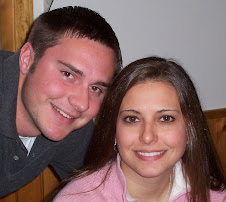Reeves, Byron, and Clifford Nass. 1996. "Ch 1, The Media Equation," pp. 3-18 in The Media Equation. Cambridge University Press.
I found this article to be very interesting, but I felt like I had a million thoughts running through my mind as I read it. I was thinking about so many different scenarios where I’ve seen these things happen, both to me and to my students. It really made me think about how I view technology.
To sum up the idea of the “media equation”, I thought this line from the chapter was perfect, “In short, we have found that individuals’ interactions with computers, television, and new media are fundamentally social and natural, just like interactions in real life” (Reeves & Nass, 1996).
After considering the idea of the “media equation,” I feel like this topic does impact my study on the digital divide. Actually, I think it impacts any sort of study on any topic dealing with technology.
I think that the concept behind the media equation, the fact that humans interact with computers as if they might be humans, is becoming a huge part of our society. I think this because of how technology is a huge part of our society and most people’s day to day lives. A perfect example of this is how people don’t really write letters as much as they used to, instead we write emails. The computer is now our source of communication, much as a human would be if they were in front of us, and in the same form, meaning that the response is almost immediate.
This concept is very applicable to the idea of the digital divide, because it effects how different people communicate, due to having technology or the lack there of. “Like all other tools, it seems that media simply help people accomplish tasks, learn new information, or entertain themselves” (Reeves & Nass, 1996). If this is the case, then those people without access to technology are at a disadvantage.
My wonder now is, do people who do not use technology very often, respond to computers the same as people who use technology many times in one day? Do they still treat computers as humans?
I think my favorite part of this entire article is on pg. 8, where it talks about how people don’t want to make the computer feel bad. Throughout the article it also talks about how, on a survey, people don’t want to rate the computer bad, if they are taking the survey on that same computer…basically because they don’t want to hurt the computer’s feelings. At first, I was laughing about this. But, when I actually thought about it, I would have done the same thing! J This article is humorous and very true!
Friday, April 11, 2008
Subscribe to:
Post Comments (Atom)

1 comment:
Hey Jenn! I totally agree with you. The article was fascinating and it brought up so many points that I had never thought of before, but when I reflected on them they made total sense to me. I would probably not want to rate a computer poorly, either! :o) That is a great point that you made about wondering if people that do not use technology very often still treat them as humans. I have no "real" reason to think this, but I would guess that people who do not use computers often would treat them as MORE human than those who interact with them frequently. Sitting down in front of a computer that greets you with "you have mail" or the many software applications with animated creatures telling you what to do, etc. would probably make them more likely to treat it as a person, because of their lack of experience. Like the article said "Novices like special treatment." :o) I think I am also comparing the people that do not have access to computers to my first graders, many of whom lack experiences with computers, just due to their age. I love to watch them on the games, because they are right there nodding along and talking back to the screen. It always gave me a smile before, but now it really makes me think. I always thought it had more to do with their cognitive levels (the whole idea of tipping over the on-screen popcorn), but now it makes me wonder if it could be more of a social thing. Anyway, I liked your insights. Thanks for sharing!
Sabrina
Post a Comment